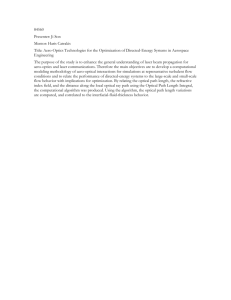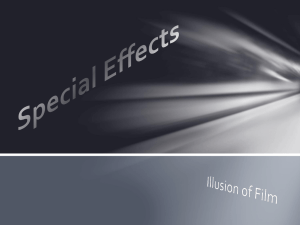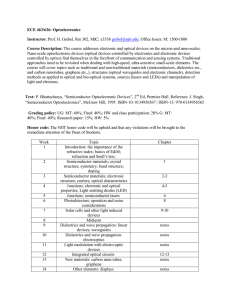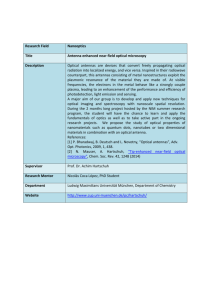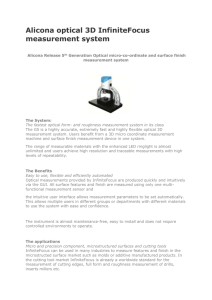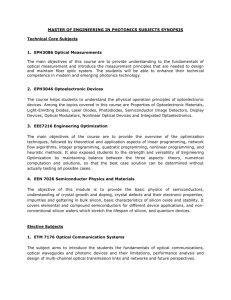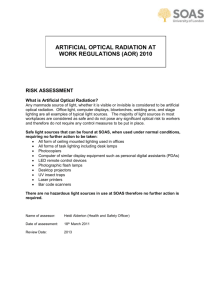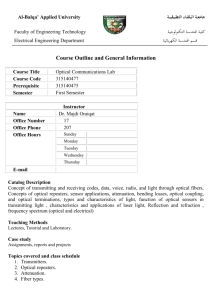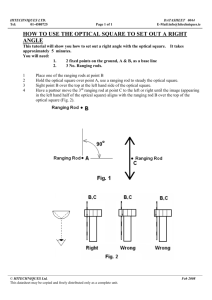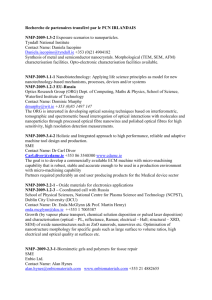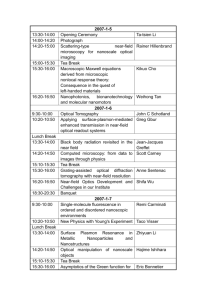Competition between superconductivity and spin-density
advertisement
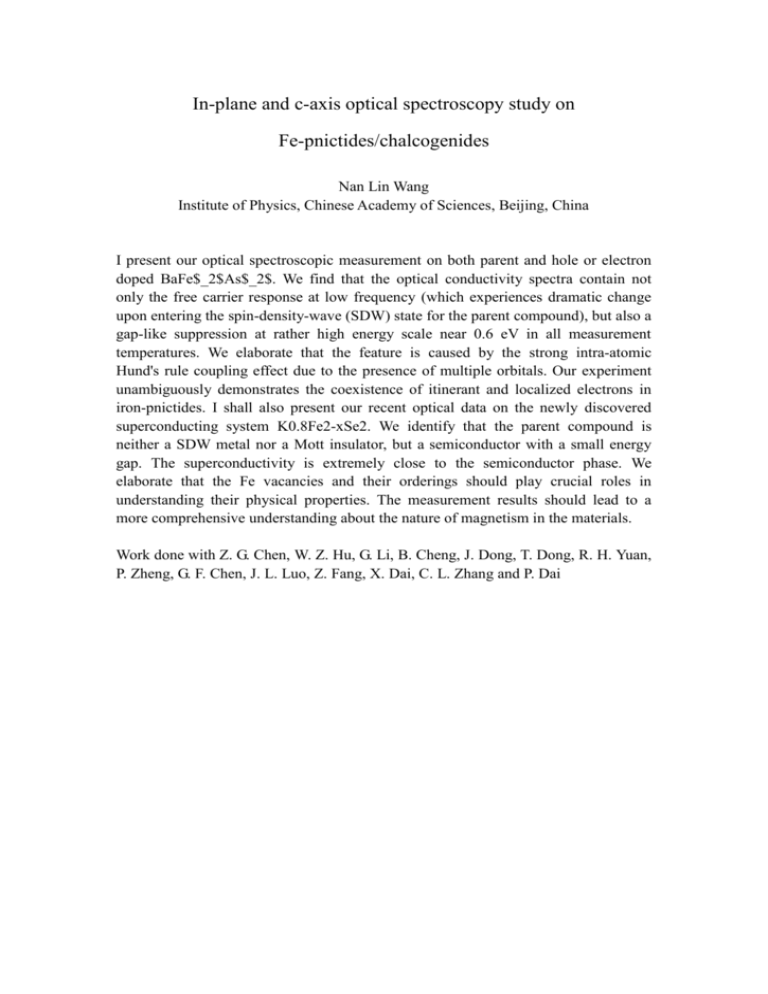
In-plane and c-axis optical spectroscopy study on Fe-pnictides/chalcogenides Nan Lin Wang Institute of Physics, Chinese Academy of Sciences, Beijing, China I present our optical spectroscopic measurement on both parent and hole or electron doped BaFe$_2$As$_2$. We find that the optical conductivity spectra contain not only the free carrier response at low frequency (which experiences dramatic change upon entering the spin-density-wave (SDW) state for the parent compound), but also a gap-like suppression at rather high energy scale near 0.6 eV in all measurement temperatures. We elaborate that the feature is caused by the strong intra-atomic Hund's rule coupling effect due to the presence of multiple orbitals. Our experiment unambiguously demonstrates the coexistence of itinerant and localized electrons in iron-pnictides. I shall also present our recent optical data on the newly discovered superconducting system K0.8Fe2-xSe2. We identify that the parent compound is neither a SDW metal nor a Mott insulator, but a semiconductor with a small energy gap. The superconductivity is extremely close to the semiconductor phase. We elaborate that the Fe vacancies and their orderings should play crucial roles in understanding their physical properties. The measurement results should lead to a more comprehensive understanding about the nature of magnetism in the materials. Work done with Z. G. Chen, W. Z. Hu, G. Li, B. Cheng, J. Dong, T. Dong, R. H. Yuan, P. Zheng, G. F. Chen, J. L. Luo, Z. Fang, X. Dai, C. L. Zhang and P. Dai

